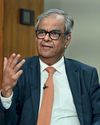Fintech lenders will have to change their business models to survive the ongoing liquidity crisis.

AMIT KUMAR, Co-founder, GalaxyCard, a digital credit card start-up, had just gone live with a non-banking finance company (NBFC) when the IL&FS default crisis erupted in September 2018. The NBFC, which had started discussions with GalaxyCard in January 2018, had big plans but changed its mind. “Nine months of integration, legal paper work and banking transactions went for a toss in just 10 days,” says Kumar. Many NBFCs that had tied up with fintech firms or were in the process of doing so are not even willing to talk, says Kumar. As a result, a lot of fintech lenders are finding it difficult to raise funds. Some are even closing down.
The liquidity crunch has put a spanner in the works for such firms despite the fact that the potential market of millennials and salaried professionals remains. Akshay Mehrotra, Co-founder and CEO, EarlySalary, sees a huge untapped market in consumers with credit scores of less than 750 and loan size below Ì€ 1 lakh for less than one year tenure. “The salaried individual segment is a 4.5 lakh crore opportunity (by 2023/24) based on 201 million individuals,” he says.
India is the second-biggest fintech hub in the world, after the US, with 2,035 start-ups in the sector against just 737 in 2014, according to the India Fintech Report 2019 by Medici.
However, fast paced growth in a short span doesn’t guarantee sustainability. China’s peer-to-peer (P2P) lending segment flourished in the past four-five years but witnessed multiple defaults from June 2018 after it surfaced that a few P2P operators had duped investors. Thousands of platforms disappeared over two years.
In India, regulations are trying to put things right.
Road to Regulations
Diese Geschichte stammt aus der June 30, 2019-Ausgabe von Business Today.
Starten Sie Ihre 7-tägige kostenlose Testversion von Magzter GOLD, um auf Tausende kuratierte Premium-Storys sowie über 8.000 Zeitschriften und Zeitungen zuzugreifen.
Bereits Abonnent ? Anmelden
Diese Geschichte stammt aus der June 30, 2019-Ausgabe von Business Today.
Starten Sie Ihre 7-tägige kostenlose Testversion von Magzter GOLD, um auf Tausende kuratierte Premium-Storys sowie über 8.000 Zeitschriften und Zeitungen zuzugreifen.
Bereits Abonnent? Anmelden

"Inaction is worse than mistakes"
What was the problem you were grappling with?

TEEING OFF WITH TITANS
BUSINESS TODAY GOLF RESUMES ITS STORIED JOURNEY WITH THE 2024-25 SEASON OPENER IN DELHI-NCR. THERE ARE SIX MORE CITIES TO COME

AI FOOT FORWARD
THE WHO'S WHO OF THE AI WORLD GATHERED AT THE TAJ MAHAL PALACE IN MUMBAI TO DELIBERATE THE TRANSFORMATIVE IMPACT OF AI ON INNOVATION, INDUSTRIES, AND EVERYDAY LIFE.

Decolonising the Walls
ART START-UP MAAZI MERCHANT IS ON A MISSION TO BRING INDIA'S FORGOTTEN ART BACK HOME

"I'm bringing Kotak under one narrative, one strategy, one umbrella”
Ashok Vaswani is a global banker who spent most of his career overseas at institutions like Citi Group and Barclays, among others.

CHOOSING THE CHAMPIONS
The insights and methodology behind the BT-KPMG India's Best Banks and NBFCs Survey 2023-24.

'INDIA IS AT AN EXTREMELY SWEET SPOT'
The jury members of the BT-KPMG Survey of India's Best Banks and NBFCs discuss developments in the banking sector and more

FROM CRISIS TO TRIUMPH
Dinesh Kumar Khara stewarded SBI through multiple challenges during his tenure, while ensuring that profits tripled, productivity soared, and the bank consolidated its global standing

AT A CROSSROADS
BANKS ARE FACING CHALLENGES ON BOTH SIDES OF THE BALANCE SHEET-ASSETS AS WELL AS LIABILITIES-WHICH ARE PUTTING PRESSURE ON MARGINS.

EXPANSIVE VISION
Bajaj Finance, an outlier in terms of digitisation, faces stiff competition. But it continues to expand its reach